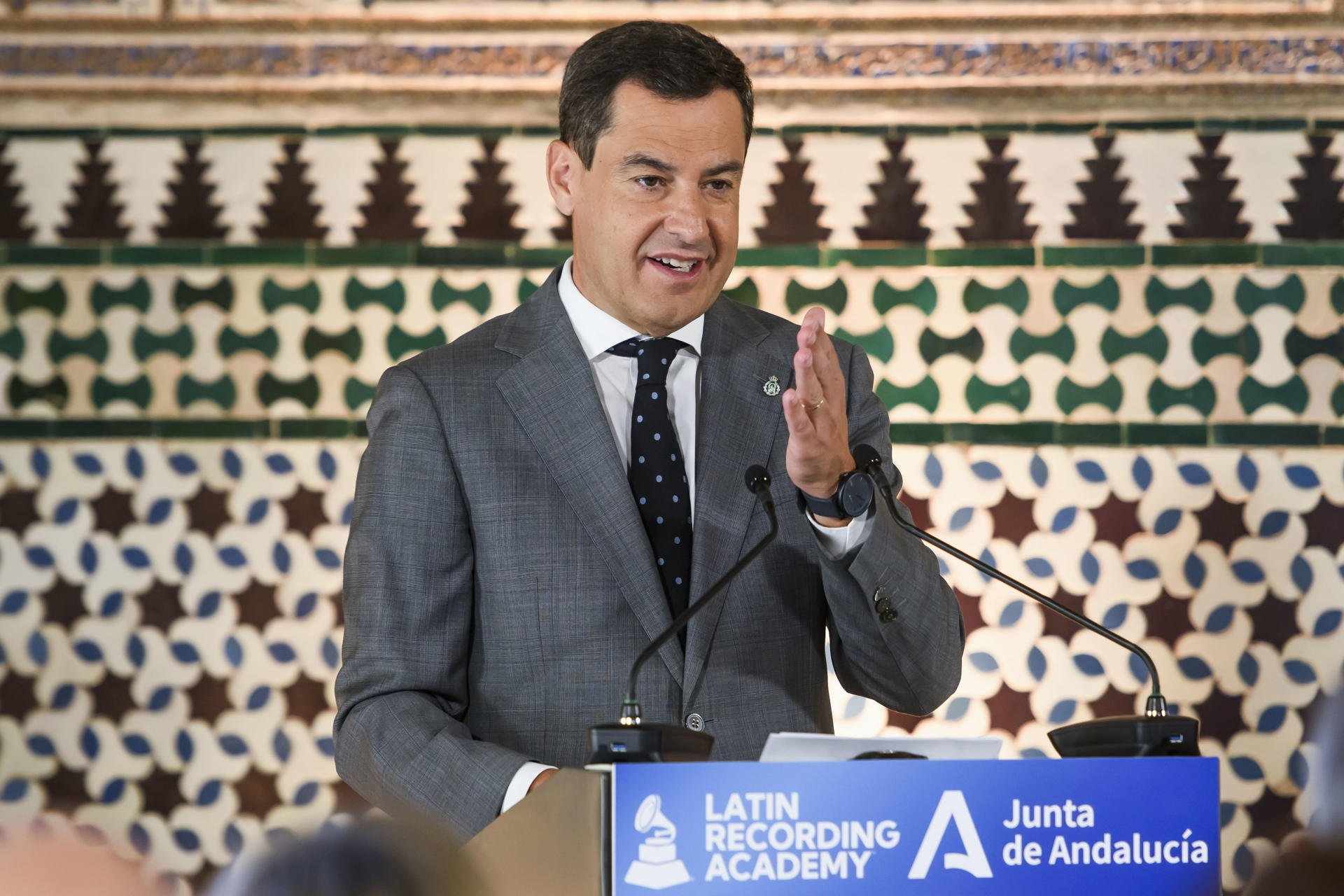They call it a tamayazo and it means betrayal, named after the Madrid Socialist politician Eduardo Tamayo who was induced to vote against his own party in 2003 and thus precipitated the handing of regional power to the conservative People's Party (PP). It is a word that is being heard across the Spanish political landscape; in a context where a part of the Spanish Socialist party (PSOE) is opposed to the leadership line of Pedro Sánchez, with the most right-wing sectors of the party raising a public clamor against the amnesty for the independence process prosecutions as well as other possible pacts with the pro-independence parties to invest Sánchez as prime minister. The most vocal opposition to Sánchez comes from former Spanish PM Felipe González, his former deputy Alfonso Guerra, and regional barons like Castilla-La Mancha leader, Emiliano Garcia-Page, and the PSOE leader in Aragon, Javier Lambán. With this panorama within the Socialist camp, the president of the Andalusian government and leader of the Andalusian PP, Juanma Moreno, has called this Friday for PSOE parliamentarians to rebel "out of their principles" and break party discipline in next week's debate and vote on whether or not the PP's national leader, Alberto Núñez Feijóo, should be the next prime minister. Feijóo will only have a chance if something that radical happens, with no less than four turncoats required.
In an interview with the digital daily El Confidencial, Moreno encourages Socialist MPs to cross the floor and join the PP to avoid concessions to the pro-independence parties. He appeals to their "conscience of state" to collect the four votes that Feijóo lacks to succeed in the vote on his investiture as new head of the government. "Beyond the logical party discipline, which must exist, sometimes extremes are reached in which the MPs have to rebel because of their own principles", emphasizes the Andalusian leader, who specifies that an MPs possession of his seat in parliament is personal, even if presented via a political party, and thus it is the member who makes the decisions.
Moreno affirms that he has heard rumblings from many Socialist deputies - "not one or two" - who do not agree with Pedro Sánchez's line or with a hypothetical amnesty for Catalan pro-independence activists, although he believes that "they will be suffocated by party discipline and fear". "Sánchez has ensured that whoever speaks out is expelled from the party immediately and will be condemned to ostracism within the PSOE", criticizes Moreno in reference to the expulsion that has already happened, that of former Socialist leader Nicolás Redondo Terrero, motivated by "repeated disdain" of the party, in the eyes of the current Socialist leadership.
Danger of 'tamayazo' in Congress
The tamayazo or induced political defection is a practice of dirty politics that the PP have put it into practice before, as seen in the buying off of the two UPN deputies in the last legislature to vote against Yolanda Díaz's labour reform - against the directive given by their own party. Nor would it be the first time that a political representative of the PSOE votes against the party line, with Eduardo Tamayo and his colleague María Teresa Sáez in 2003 being the classic case.
In this context, Alberto Núñez Feijóo called the Socialist president of Castilla-La Mancha, Emiliano García Page, one of the Socialists most critical of Sánchez and the pacts with Catalan independentism, on Thursday. But despite his criticisms of the PSOE leadership's line, he has warned that he will not secure such votes. In an interview with Cadena Ser, Page said that "whoever is playing on the PP's lack of votes, its electoral deficit, compensated by defections from the PSOE, may find them, but it certainly won't be because of me". "Things must be clean. The government of Spain, whatever it is, can never be subjected to tamayazos of any kind. And I've said it from the start. I will always be consistent."

